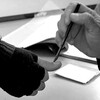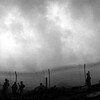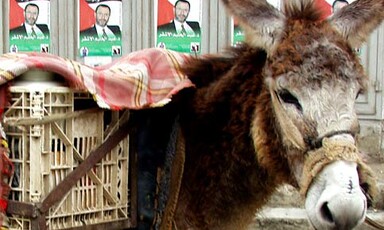
Election Irregularities: Confusion and chaos after change of election rules
9 January 2005
At around 5 P.M., the Central Elections Commission allowed Palestinians to vote solely based on their identity cards, without any need to check them against the electoral register or census list. This caused many Palestinians who were not registered to vote to enter polling centers. EI’s Arjan El Fassed witnessed confused voters and chaotic scenes. Adding to the confusion, Palestinian police allowed anyone to enter polling stations. These could have lead to voter fraud, since voters would be able to vote twice without being checked against the population registry. Read more about Election Irregularities: Confusion and chaos after change of election rules








